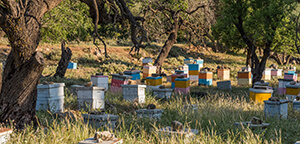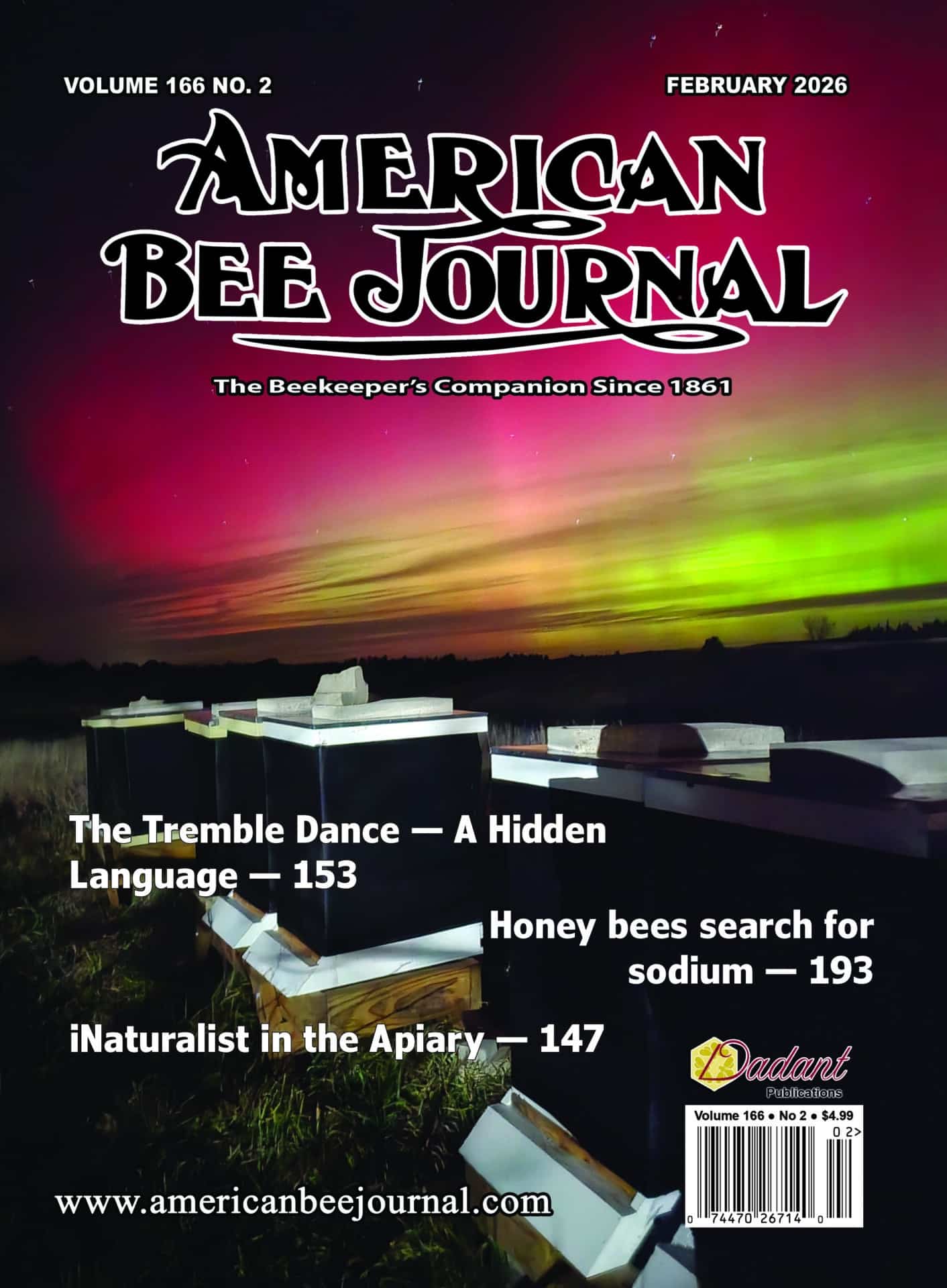
This may be the last ABJ article I ever write. Why? I have a premonition that an article about English in a beekeeping journal won’t go over well with the readership. It might be a fireable offense, like writing about icing cupcakes in a wrestling rag. Nevertheless, I’m not easily deterred.
Humans communicate through language. We learn, discuss, and teach by using words we understand, words with meanings we agree on. Every hobby, trade, and field of inquiry has its own vocabulary that allows the participants to discuss the minutiae of their interest.
Beekeepers are no different. We have dictionary-length lists of specialty words that allow us to communicate with each other. But far too often, we end up using the same words for multiple things and wondering why newbies are so slow to catch on. A case in point is the word hive.
A hive in a hive
If you research the history of the word hive, you can find it defined as “a man-made housing for a colony of bees.” That’s a straightforward, easy-to-understand definition with no confusion. If you use that definition, you will never have a hive in a hive unless, for some obscure reason, you put a small bee house inside a larger one.
Beekeepers today call everything a hive. The box, the colony, a swarm in a tree — all of these are hives. Longtime beekeepers will tell you clarification is unnecessary, that the meaning is clear. Sure, I get that. But when we’re teaching, mentoring, lecturing, or answering questions — when we’re attempting to impart any kind of knowledge — we owe it to our audience to use words they can understand without confusion.
Hives don’t die
Students live in dorms, soldiers live in barracks, and families live in houses, apartments, or tents. Unless it’s a rental property, we seldom ask if the house for sale down the street includes the family. When your pig dies, you don’t say your pigpen died. When your rabbit dies, you don’t say your hutch died. So when your colony dies, why do you say your hive died? Most likely, that wooden box is doing fine.
I have an internal battle with sarcasm every time someone tells me their hive died. I want to ask how they knew, what the symptoms were, and how they disposed of it. The same is true for hives that swarm. Swarming hives make me think of the Wizard of Oz, and I imagine wooden Langstroths swirling in the winds of a tornado, heading for the nearest wicked witch.
Keep it clear
Just like everyone else, I began beekeeping thinking hive was the word. It wasn’t until I began writing and mentoring that I realized how confusing it could be. Of all my own bad beekeeping habits, the sloppy use of hive has been the hardest to break. I answer beekeeping questions every day, yet I always need to edit my work and delete inept uses of that word. Although I’m getting better, it’s ingrained and nearly impossible to break. The reward is in responses from others, things like “Oh! Now I understand!”
I’m not the arbiter of bee terminology, so I can understand anyone using definitions that are different. That’s fine. But if you’re going to use the word hive for most things bee, at least give your newbie friends a heads-up. Explain that when you say hive, you may mean the box, the colony, the box-colony combination, a swarm, the act of putting bees in a box, or the red welt on your arm. In other words, be crystal clear.
A nuc for a nuc
The word nuc suffers from exactly the same problem as hive. We can buy a box for a nuc, which we call a nuc, and then we put the nascent colony inside, also called a nuc, and then together they make a third thing — bees and box combined — also known as a nuc. If we could only conserve species with the same zeal we conserve words.
Inexplicably, the thing inside the nuc becomes a hive once you put it into a hive. So when we take a nuc from a nuc and hive it, it becomes a hive in a hive.
But I have other issues with the word nuc. Not surprisingly, the word is shorthand for nucleus. When I google nucleus, I see that a nucleus is “the central and most important part of an object, movement, or group, forming the basis for its activity and growth.” That definition works perfectly for beekeepers because a nucleus contains the heart of a bee colony: a brood nest, nurse bees, and a queen. Simple and clear.
But every single day I see this word spelled NUC as if it were an acronym or Nuke as if it might explode. I often wonder what people think the acronym represents or how one might detonate the thing. I got an email recently asking about a N.U.C. It reminded me of that old television show, “The Man from U.N.C.L.E.” Imagine, “The Drone from N.U.C.”
Does it hatch or emerge?
American Bee Journal clarifies the use of some beekeeping terms. If you go to their website, click on Contact, and scroll down to Writers’ Guidelines, you will find a section called, “Language use relevant to writing about bees.” Although the list doesn’t mention hives, it ….


